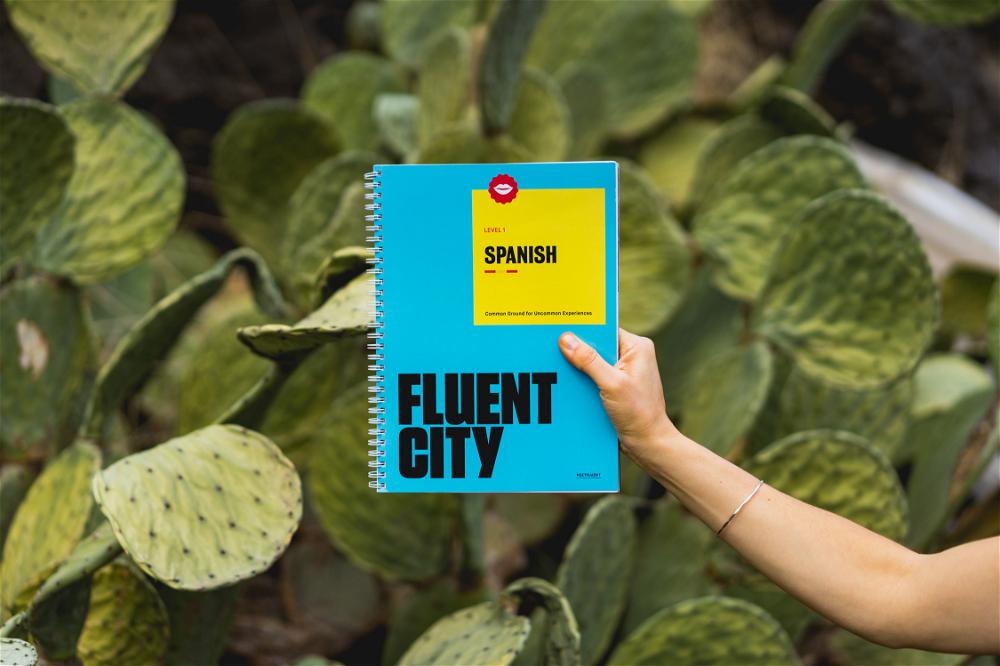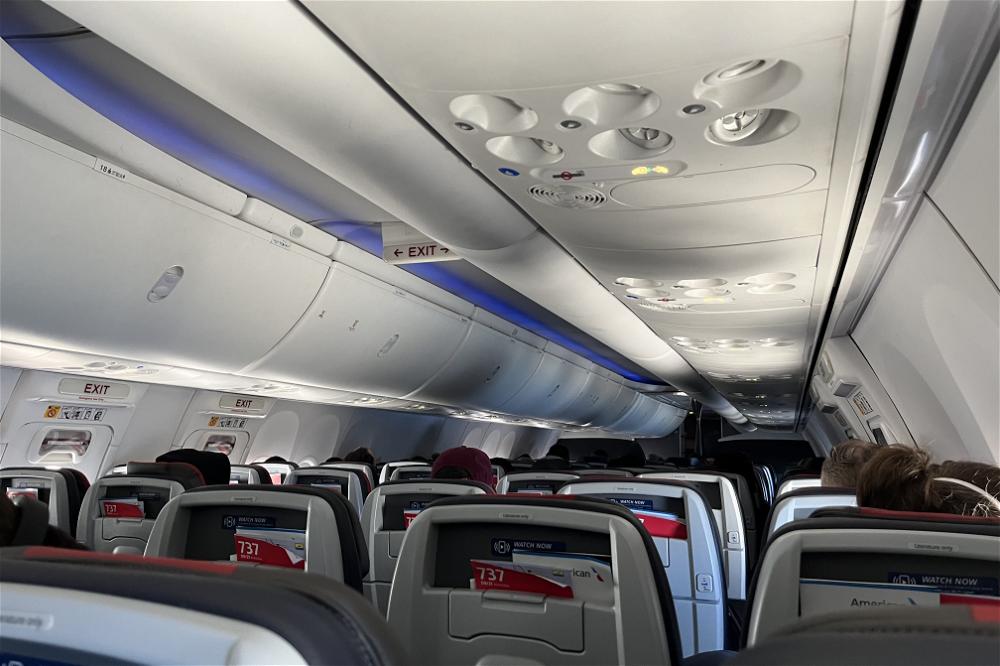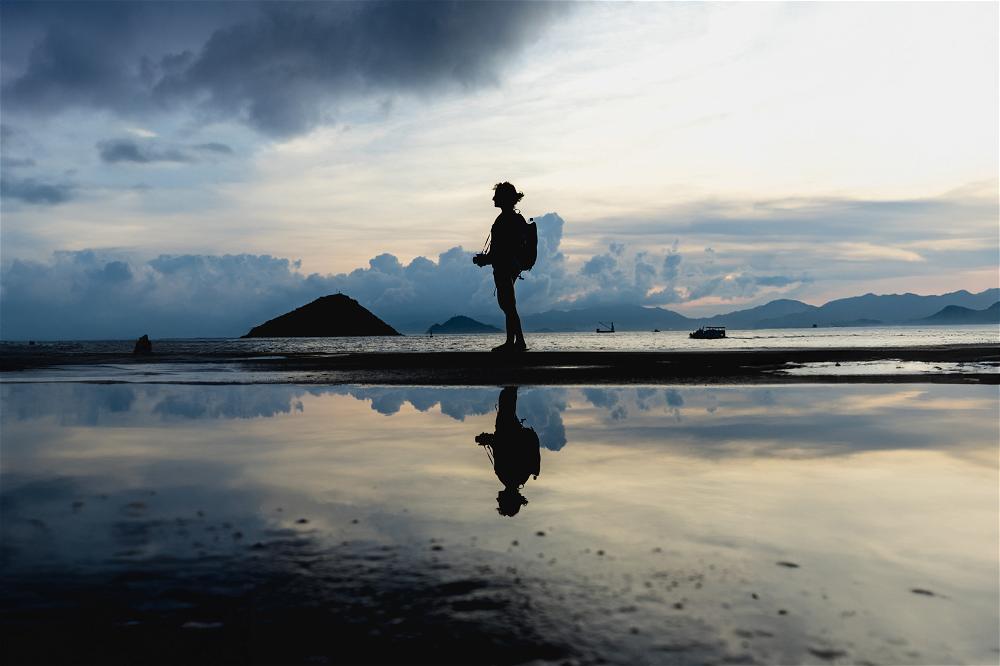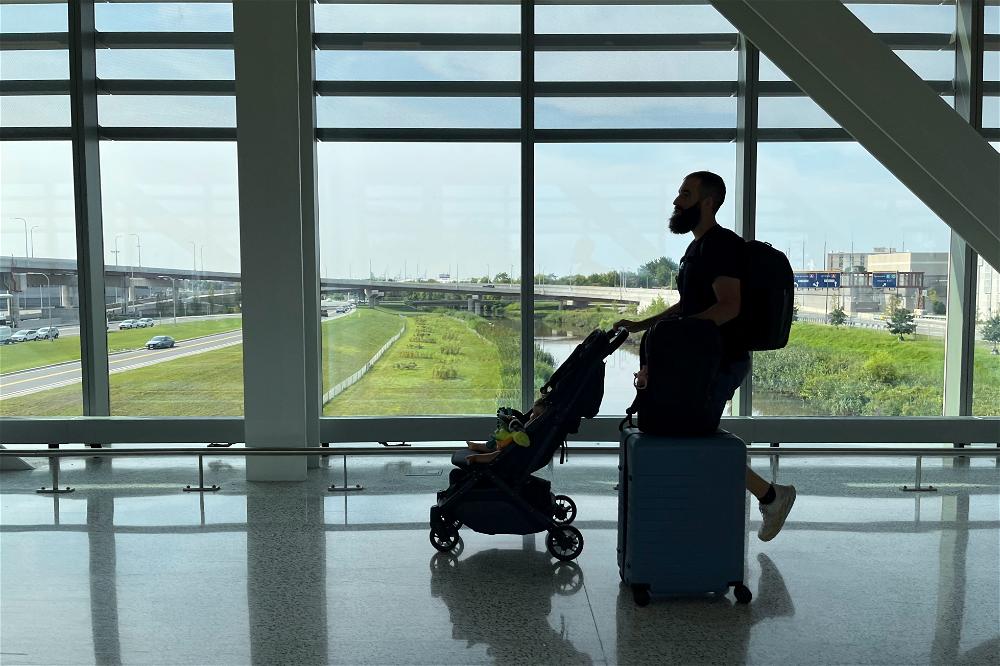36 Real Ways to Save Money While Traveling (Actionable Tips)
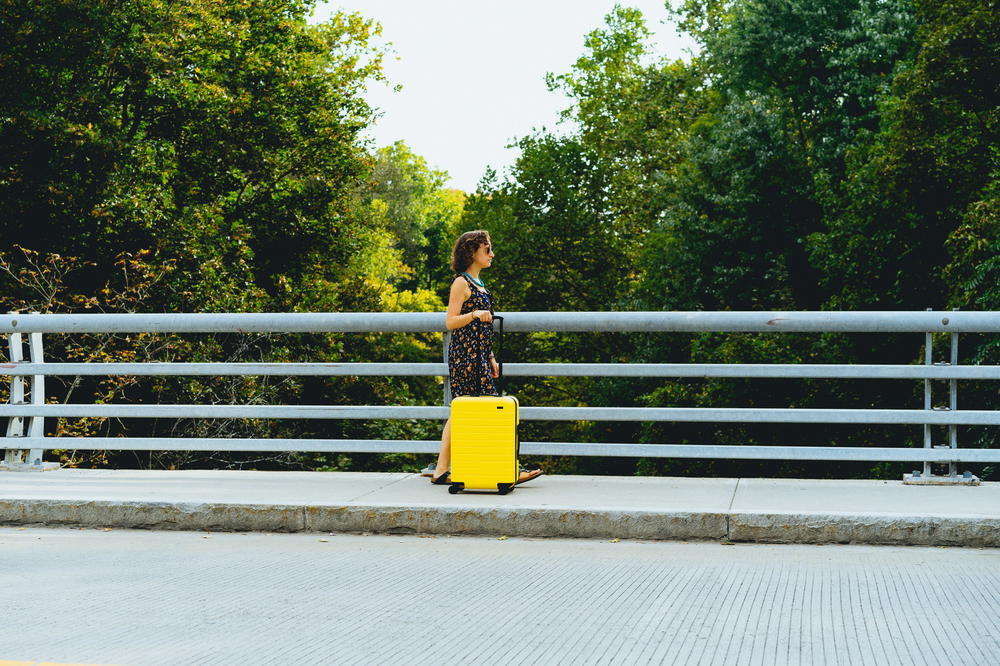
Here are our proven best ways to save money while traveling. When traveling on a budget, there are lots of ways to make your money last longer, even during inflation.
This article may contain affiliate links. We earn a small commission when you purchase via those links — at no extra cost to you. It's only us (Becca & Dan) working on this website, so we value your support! Read our privacy policy and learn more about us.
Table of contents
- Travel in the off-season (aka never around Christmas)
- Find things to do for free when you travel
- Walk and take public transit when you travel
- Minimize attractions with entrance fees or cover charges
- Minimize buying drinks at bars
- Avoid losing all your money with an emergency stash
- Cook more and eat out less
- Cook with fun local (and cheap) ingredients from markets
- Compare the flight costs in low season
- Save money by staying in hostels
- Try house-sitting to save money on accommodations
- Save money by booking accommodation for longer to get discounts
- Travel in places where your home currency takes you farther
- Travel on less than $50 per day
- Track your spending with an app
- Use Splitwise to keep track of splitting bills with friends
- Avoid the most expensive places to travel (or know the reality)
- Research the price of travel and the trends
- Cut out shopping and take photos instead
- Get connected to some locals
- Drink the tap water (if it’s safe)
- Buy local brands and locally-grown produce as snacks
- Do your research in order to save money and avoid fines
- Listen to travel and finance podcasts!
- Use a credit card to get a good foreign exchange rate
- Sign up for credit card a bonus to pay for your trip on miles
- Don’t pay foreign transaction or ATM withdrawal fees, ever
- Shop around for trip insurance online
- Get Priority Pass to save on airport lounges, and get in for free
- Find the best price for flights
- Save money with rental cars
- Save money by using ride-share-style cabs
- Travel in a group and share download links for free credit
- Shop around for the best hotel, Airbnb and hostel prices
- Take out a weekly budget in cash
- Find creative and new ways to work remotely and travel
When traveling, you may want to save as much money as possible so that you can extend your trip. The less money that you spend means that you have more money to spend on experiences, accommodations and everything else.
It’s easy to not think twice about expensive upgrades and eating at restaurants every meal. At home, you’re in control and you know your budget. When traveling, you may have different currency and don’t want to skimp! For comprehensive guidance on managing money while traveling internationally, check out our complete travel money guide.
So, how can you still have a great time on your trip while optimizing for a budget?
Let’s find out!
Travel in the off-season (aka never around Christmas)
Have you heard the term ‘high season’? It’s a real thing!
Some places become more expensive during Christmas and New Year’s, during summer (relative to the hemisphere!) and during spring breaks (depends on local university schedules).
If you avoid these times of year, you’ll find hotels that want to fill up their properties, tours that may discount prices in order to draw visitors in the off-season and lower flight prices.
Depending on where you are going, do your search to determine when high season is and try to avoid it.
Find things to do for free when you travel
All over the world, it is possible to find things to do for free. It’s a great way to beat inflation or rising costs, and enjoy activities that cost nothing.
If you’re not interested in walking for miles to see a city and its parks or buildings, you can seek out ways to enjoy nature and the arts, like for example with this list of free things to do in NYC.
In Rotterdam, which is a fairly expensive place to travel in terms of the cost of accommodation and food, we appreciated famous architecture for two days, all without paying a Euro! We took ourselves on a self-guided walking tour and snapped photos of the Cube Houses and the train station that looks like a spaceship.




In Tenerife, we hiked Teide National Park for free on its trails that are available when you get off the public bus. The visitors center is free as well. We avoided the tourist-heavy gondola ride up the mountain, and we somehow didn’t pay any fees aside from the public bus ride.
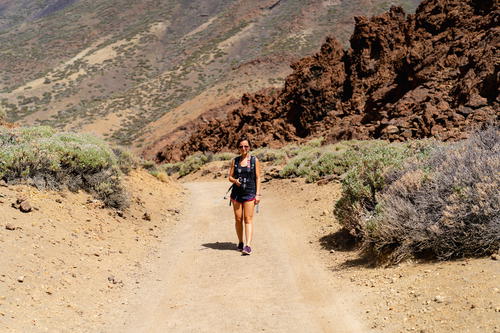
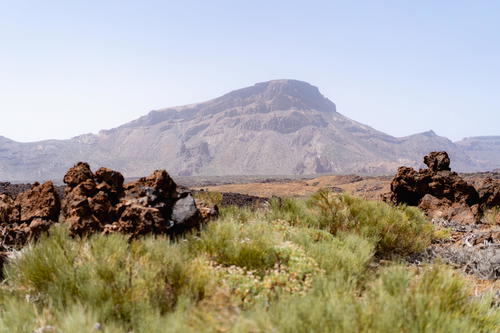
In Ireland, we entered natural and historic sites like Glendalough for 0 EUR, and enjoyed priceless views and the feeling of being in ancient medieval ruins.
On a road trip in Upstate NY, we got the coolest scenic views of the Hudson River on a beautiful (and unexpected) hiking trail at Olana State Historic Site, all for free.
All these cool things we did cost us nothing and were just as memorable as lots of things we’ve done that cost us entrance fees.
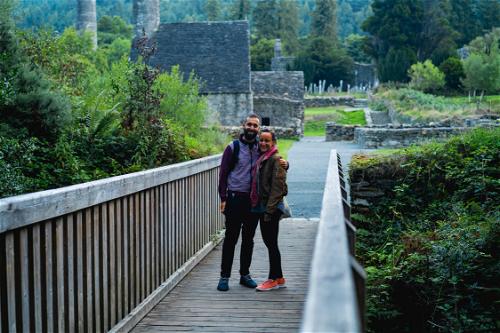


Walk and take public transit when you travel
We love walking, and we also focus on our daily step count. As our friends Alex and Ryan would say, “Keep moving!”
If it comes down to having some time in which we can walk rather than taking a taxi, we’ll do that! If we can’t walk, meaning if distances are too big, we first consider mass transit. Mass transit is more environmentally-friendly and usually saves money (especially if traveling solo).
In Europe, the train and bus systems are very impressive and efficient most of the time, and in Amsterdam, we immediately looked for the public train that would take us from Schipol Airport to the city center.
From there, we used Google Maps to find the correct tram to the Lloyd Hotel and the ticket-taker advised us to buy a multi-day tram pass that wound up being very efficient for our purposes in Amsterdam.
Overall, walking and figuring out the bus, subway or train routes helps us to avoid hefty prices on taxi travel.
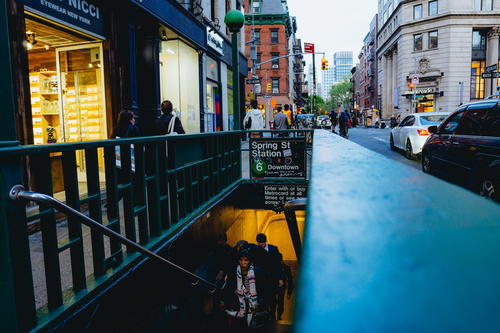
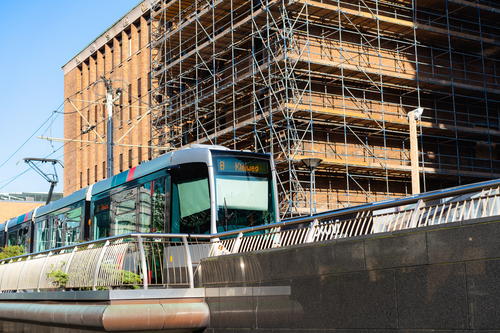
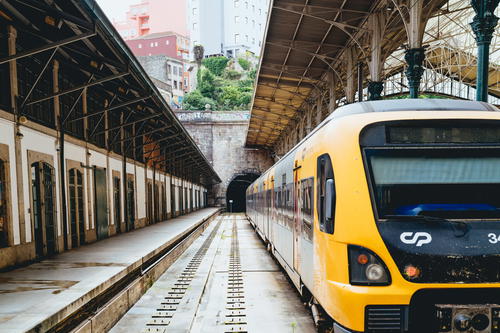
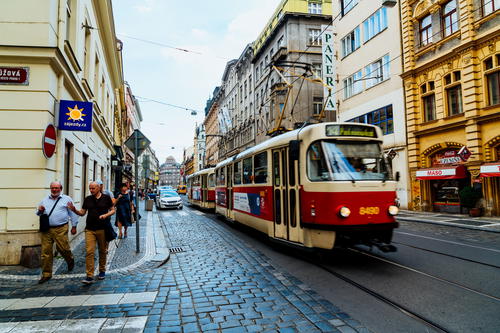
Minimize attractions with entrance fees or cover charges
All over the world, there are attractions that cost money. During times of inflation, these types of charges will increase.
In no way am I telling you not to go to incredible wonders of the world like the Sagrada Familia in Barcelona or the Forbidden City in Beijing (both of which require paid tickets acquired beforehand for entrance), but it’s important to realize that most of enjoying a place does not require spending heaps of money.


For our days spent in Barcelona, Spain, when we did not go to the Sagrada Familia or Parque Guell (also requires a ticket purchased in advance), we walked six or seven miles, getting to know the city, its neighborhoods, its many parks and cafes.
This kind of enjoyment is free (or costs very little, depending on what you eat or drink).
When I went to Singapore in 2012, I saved money by staying with a friend, but blew my budget by taking a $40 taxi one night by myself and going to Singapore’s most famous bars and clubs, which charged cover fees of $25/person, each night of the weekend. This accounted for a chunk of my daily travel spend and gave me a bit of stress!
Conversely, we went on a day trip to the Mexican village of Izamal, where all attractions were free and we spent an entire afternoon packed with sights, without spending anything.
Minimize buying drinks at bars
If the cost of food wasn’t enough when traveling long term, the cost of alcohol has to be added on top.
If you consider that in some of the world, beer costs $0.25 (Vietnam), but in some places, $10 (San Francisco, CA), there are some very varied costs in consuming alcohol in different parts of the world.
No matter where you go, alcohol is not something required for your body. Although some people travel for beer, or travel for cocktails or wine, or consider alcohol as a way to explore a place, if you consume alcohol every day, it can become a hefty portion of your daily travel costs.
There are ways to avoid paying per-drink at bars, however - if you’re staying at a hostel and there’s a common space, backyard or rooftop, you can bring back a six-pack or bottle of wine (if rules allow it).
We did this at our hotel in Montauk, NY, where sitting around the fire pit with a can of hard seltzer was just as relaxing as it would have been in a bar in the downtown.
In some countries, drinking in parks is allowed (Spain has this type of culture, for example), and you can purchase your wine or beer at a corner store or supermarket and enjoy it in the outdoors.

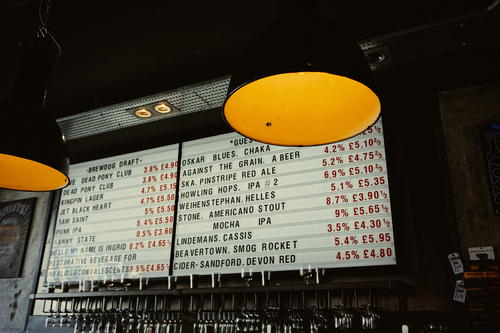

Avoid losing all your money with an emergency stash
This is for of a safety trick, but it goes for saving money as well because you’ll save money if you are smart with it.
Best tip is to avoid travel with a lot of cash, but do keep an emergency stash just in case of emergencies.
Be sure to break it into smaller stashes and spread them around your gear in places people won’t think to look, like places that are not visible. Don’t ever let anyone see you handling your cash stash (or where you stash an emergency credit card (i.e. don’t keep all your credit and debit cards together).
Lastly, write down where you stash your cash so you don’t forget (write it in a place that only you can access!)
Especially when walking around places where petty theft is common (Spain, Colombia and Vietnam, to name a few) we choose to leave most credit cards and most cash in our apartment or hostel, and only leave for the day or evening with what we need.
This means having one debit card, one credit card and a non-excessive amount of cash in our wallets at any given time.
Our emergency and alternate credit cards are kept in secret places (it’s true!) in our luggage so that someone who may enter the room where we’re staying won’t find them quickly.
Cook more and eat out less
There, we said it: stop eating in restaurants (all the time!).
If you travel for longer than a three or four-day getaway, you notice how eating in restaurants adds up very quickly.
There’s tax, tip (most places), the drink from the ‘Drinks’ section that looks good, the add-in of an appetizer or a side (or three) and a little bit of dessert.
Unless you’re in Sri Lanka, where eating out for two runs you 6 USD (all following prices are listed in USD) or so (with tea and smoothies), chances are that eating out in most of the world is more expensive than cooking your own food.
Plus, cooking more and eating out less (or skipping the full sit-down meals and opting for fast casual) is a great way to save money during periods of inflation.
Cook with fun local (and cheap) ingredients from markets
For this reason, when traveling long-term, Dan and I choose to cook with fun local ingredients we find in markets and in supermarkets.
In fact, one of the first things we do when we get to a new city is to locate the nearest supermarket, and ‘star’ it in our Google Maps.
In Peru, we cooked with Peruvian chili peppers, in Colombia we cooked with arepas and in Mexico, we made everything into a taco (a package of 10-12 corn tortillas is about $1 at most corner stores).
If you’re traveling full-time or for an extended period of time, it’s a great idea to learn to cook some easy dishes, because eating out can get old, fast.


Compare the flight costs in low season
As a quick example, Dan and I compared the cost of flying from Mexico City to New York on January 1 and on January 15.
On January 1, a one-way from MEX to NYC is $577, and on January 15, the price goes down to $164, one-way. To save $413, you can schedule your trip two weeks later (when schedules permit).
An interesting way to think about this is, Will the cost of staying another X days in the city will outweigh the costs of a more expensive flight, sooner?
To date, I’ve also taken two trips to Colombia in February, which is a rarer time of year to travel, relatively-speaking. My flights were rarely more than $350, round-trip.
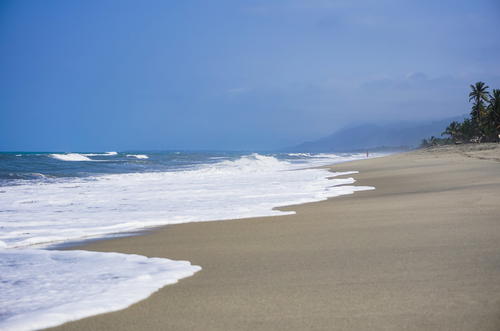

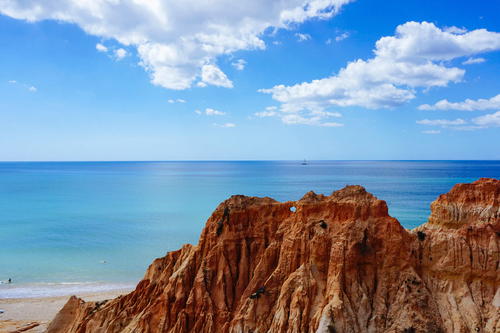
Save money by staying in hostels
Why should you stay in hostels?
First, it’s appropriate to point out that hostels aren’t ‘always cheap.’
In fact, in the Netherlands and on Ireland’s Wild Atlantic Way, we chose to stay in Airbnbs because hostel privates cost upwards of $100 per night.
Hostels are a memorable experience
For the most part, Dan and I have traveled in many parts of the world and have stayed in awesome hostels that have been both affordable and memorable.
Why do we love hostels?
Hostels are a place to make connections, to meet people, to have access to helpful staff, to take part in group outings and to learn.
Hostels provide cultural & social experiences to remember
In Israel, Abraham Hostel Jerusalem had us take part in a hummus-making class, and in a hostel in Salento, we met our hiking buddies for the following day at a campfire on our very first night.
Even if you would like some privacy and quiet by booking a private room, you can still socialize and meet other travelers in hostel common areas like lobby areas or hostel bars, patios, kitchens and rooftops.
We have both made lifelong friends from all around the world by traveling on our own (and together) when in hostels.
Plus, you may wind up with a travel buddy for a hike or side trip the next day - who knows!
Hostels are good for our budgets
For the most part, hostels have been a cost-effective way for us to travel for months on end. In Sri Lanka, we stayed in hostel privates for $40 per night, and in Guatape, Colombia, that figure was sometimes as low as $15 for the two of us.
In places like Andean South America, Central America, South and Southeast Asia, you can sometimes get a hostel dorm bed for as little as $5 to $10 USD per night. You can also find hotel rooms for as little as $16 USD on sites like Booking.com, like we did in Vietnam.
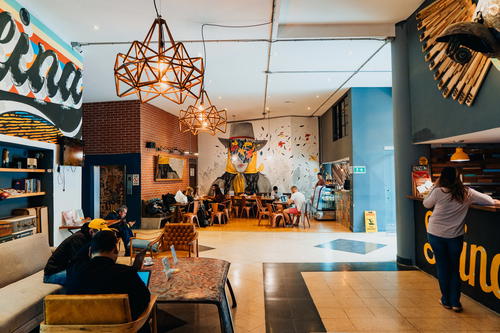

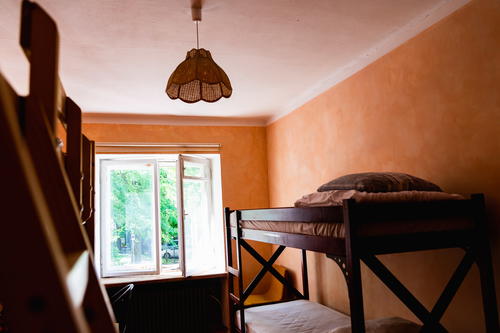
Try house-sitting to save money on accommodations
House-sitting is another great idea, and we’ve read about people who make their entire livelihoods traveling the world as house-sitters. It’s a great way to essentially get paid to travel, if you think about it like this.
Ryan and Alex recently told us that you can find free housing on TrustedHouseSitters.com with a membership fee of approximately $100 for the year.
This is a great tip for looking into, if you’re flexible, open-minded and ready for a little bit of responsibility!
Save money by booking accommodation for longer to get discounts
For long-term travelers who use Airbnb to book accommodations, you can save a significant amount of money (anywhere from 10-50%) if you book for at least four weeks, as hosts will offer monthly discounts to avoid having new guest turnover every few days.
Similarly, for the risk-takers among us, look for new properties (those with the fewest reviews), as they’ll often come with the biggest discounts from folks in need getting reviews. They’ll often be incredible hosts, as they really want the five stars.
Even if you’re planning a few side trips from wherever you are, the savings can be significant enough that you don’t have to worry about leaving the room empty for a few days, AND you won’t have to find a new place upon your return!
Our Hanoi apartment (an Airbnb) was booked for four weeks, so we got a 12% discount. We treated it like an apartment we were paying rent on, rather than a place that costs us X amount per night.
Travel in places where your home currency takes you farther
A great hack for lowering the price of travel, saving money and maximizing your budget during times of inflation is to travel in low-cost countries.
There’s a very important website I like called Price of Travel and I’ve used it a lot to compare the cost of travel in various places. Sometimes this can be very plain and simple, but sometimes it’s not as clear.
Travel on less than $50 per day
Whenever we travel to Asia and Central and South America, we put a maximum of $50 per person per day. Dan and I travel together if it wasn’t clear!
We almost always out perform our target and sometimes even make it close to $50 per day for the both of us combined.
Keeping a target for yourself and your family is a great way to stay on track and not exceed your means.


Track your spending with an app
Apps like Mint and YNAB are staples in most households for keeping track of your day-to-day budget. When you travel, well, you can still use those apps!
If you put your expenses on a credit card, you can automatically file your expenses into the travel category. If you take out cash, you can manually enter in every line item, or put the lump sum in one line item.
Some credit card also come with a baseline categorization for transactions and may give you a monthly summary. That won’t help you for cash transactions, other cards and if you split an expense with someone.
Any time I travel, I’ll manually track everything in a Google sheet (MS Excel also works). After each trip, I reflect on my spending categories and determine the cost per day and if I overspent somewhere.
With this data, I can be better informed with how to plan another trip.
Use Splitwise to keep track of splitting bills with friends
Splitwise is an app that allows you to be part of a group and track shared expenses and amounts owed over however long you want. We used it at Nine Coliving had to track amounts we owed to other travelers for groceries, group dinners and other expenses.
What we like about the app is that you only owe the final difference, and you can keep the tally going for the duration of your stay somewhere or for the length of a trip with other people. It’s so useful for traveling with friends or with group trips.
Avoid the most expensive places to travel (or know the reality)
I’ve been to Singapore, which clocks in as one of the most expensive places to travel. My cost of travel in Singapore averaged closer to $100 per day, even with staying at an American friend’s apartment.
Dan traveled to Iceland and the cost per day was comparable.
In Singapore, street food meals cost close to $20, beers in a convenience store were $7, a taxi from the bar district to my friend’s apartment was $40 and other daily expenses like snacks, coffee and taking the metro added up fast.
For places that are inherently expensive, there might not be an off season to travel in. It might be expensive all year around.
Some baseline trips that we’ve mentioned throughout this article, like leveraging hostels, shared rooms or cooking at home might help you save money through these destinations.
Research the price of travel and the trends
Figuring out the average price of travel in world cities helps us determine what we’d like to do in order to travel longer and better.
Sometimes it’s committing to cook all of our meals or cutting out drinking in bars in order to compensate for costs like rental cars, taxis we’ll need to take or costs incurred in visiting the must-see attractions of a destination.
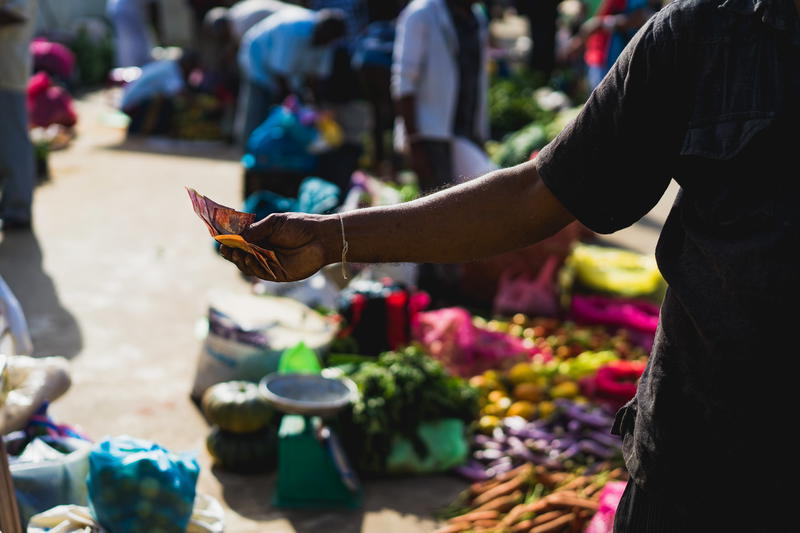
Cut out shopping and take photos instead
If you want to stop spending money when you travel, stop shopping. It’s a great hack during periods of rising costs and inflation, or at any time, as a smart choice for travel saving.
I used to buy something every time I traveled. I considered my souvenirs as a collection of the places I’d been. I used to buy a tank top for every Southeast Asian and Central American country in which I backpacked.
I grew out of this phase when I realized that the shirts would get old and stretched out or not fit anymore, but my photos were the basis for all my memories.
Is it worth collecting souvenirs?
The truth is, now I have these eight or so tank tops sitting in a box collecting dust. For the ones I like, I wear them as pajamas.
I would also buy things to take home to my family - shot glasses for my family members, local snacks (wrapped and non-perishable) for my mom and always a bag of coffee, from Guatemala or Costa Rica, for my dad.
If you’re someone who’s very into collecting souvenirs, go for it. But if you find joy in photos, or simply memories in your mind, skip the material objects that may collect dust one day in a closet.
How to stop buying stuff when you travel
So, I stopped buying things both for myself and for others. I consider that my photos say it all.
Instead of ‘investing’ in souvenirs for yourself and others, invest in a trusty travel camera that will help you remember your travels even when souvenirs get lost or broken.
Photos don’t weigh down your luggage, and they definitely don’t spoil, rot, collect dust or break (ok, maybe they can break if you don’t take good care of it). Above all, once you stop shopping, you’ll notice how much money you can save.
Check out our favorite budget cameras!
Budget Camera Ideas




Get connected to some locals
Anywhere you go, locals know what’s up. If I have visitors in NYC, they’re thankful that I can take them to the non-touristy neighborhoods they never would have found otherwise, or take them for local activities like picnics with my friends, which cost tons less than a tour or an activity that costs a lot of money.


Dan and I love meeting locals and meeting up with local friends of friends when we travel.
In Buenos Aires, it was my friend Ayelen who took us on a double-date with her boyfriend to their favorite place for steak and wine. We sat on the street and commented that if not for them, we never would have found such a local experience.
When I started planning my trip to Nicaragua, my parents found out that a friend of theirs had a good friend who owned a coffee plantation in Esteli.
They put me in touch, and I wound up with an airport pickup from their driver and a private stay on a coffee plantation for my first night when I flew in by myself!
For anywhere you go, reach out to your network. You never know who you may find - an old friend from years back, a relative you’ve never met before or a friend of the family, who has a connection to the destination you’ll be traveling in.
Post on your social media channels about where you’re headed, and ask around and talk about your trip to determine if any friends or family members have connections there.
The most meaningful travel experiences are the ones that happen with other people!
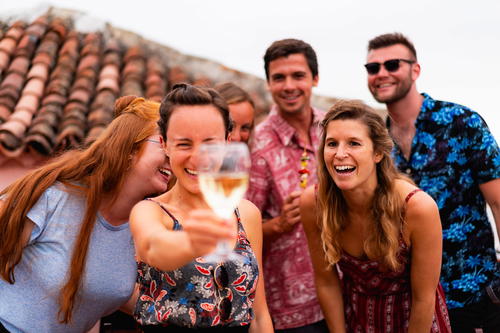

Drink the tap water (if it’s safe)
It’s incredible to realize the difference between a trip on which you can drink the local tap water and one on which you can’t.
When you can’t safely drink the water, there’s so much more to think about, like running out of water, or how much water to buy or how much water can you physically carry back to where you’re staying.
In Europe and Israel you can safely drink the water that comes out of the tap, no matter what. After traveling in Asia and Central America for five years, this came as a pleasant type of culture shock to me!
I love water and staying hydrated, so water availability is a big factor in my travel.
Is it OK to boil tap water?
When living in Shanghai, I would boil the water that came out of my sink in order to make it drinkable.
In all honesty, this was a fine scenario because most of the winter months, my apartment was so cold that I wanted to warm up with hot water! I would add tea, lemon and ginger to make it taste better.
Some places are a pleasant oasis for drinkable water, namely Medellin and Bogota, Colombia, where you can safely drink tap water and it even tastes pretty okay. In these places, it’s smart to pack a reusable water bottle in your luggage in order to minimize plastic.
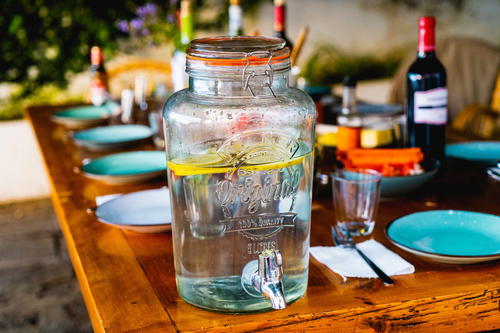


Buy local brands and locally-grown produce as snacks
What’s better than trying new foods? Nothing! We love trying the ‘local stuff’ when we travel, whether it’s local tamarind candy from Mexican drugstores (only $0.30!) or dried coconut sweets in Colombia (roughly the same price tag, at $0.31 for one!).
When I lived in Shanghai, I shopped local - Asian pears, chestnuts roasted on the street, eggs from the supermarket and of course, rice and tofu.
My friends who ‘required’ imported American goods from home at the expat grocery stores would fork over lots of money to have a taste of what they missed from home like specialty flavor M&Ms and American cereal (nearly $7.00 for a small box).
In Estonia, Dan and I asked the hostel owner of our hostel which types of foods were native to Estonia and therefore would make for affordable purchases in the supermarkets.
We found out that products like potatoes, dill, apples, pickles, carrots and beets were the in-season foods that we could buy in order to shop local and lessen our carbon footprint.
We ate pan-fried potatoes with dill countless numbers of times in the following weeks, with no regrets!
When you land in a new place, ask a local - your taxi driver, a local or any other connections you can make - for what’s locally-grown. You may be in for some great surprises.

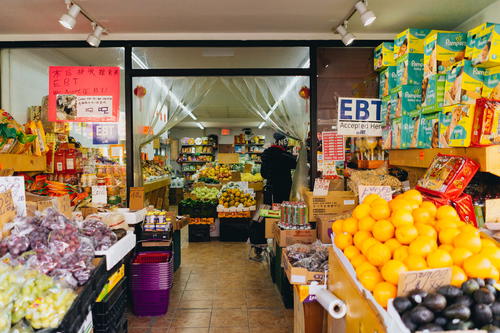
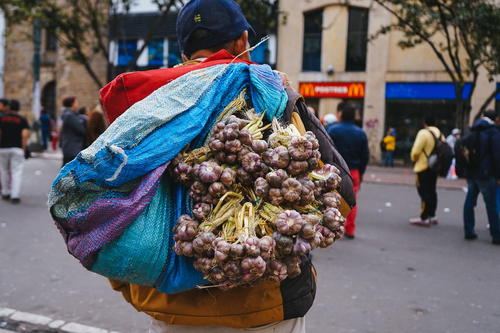
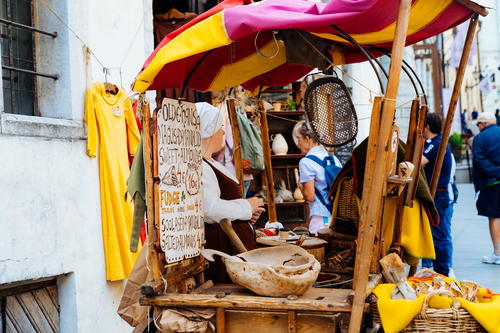
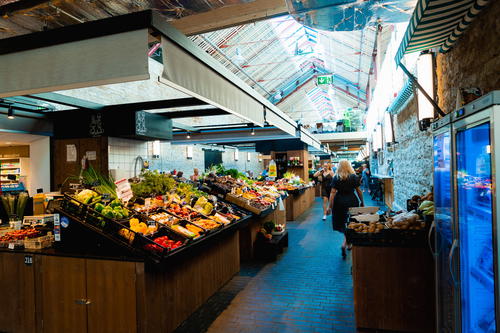
Do your research in order to save money and avoid fines
This one’s funny, but true - if you are aware of the rules in a new place, you will save money by following them. Whether it’s about open-container laws or driving regulations on the highway, asking locals or researching online can pay off.
When Dan and I were in Argentina, we rented a car and started a road trip through the Cordoba Sierra region.
The company that rented us the car had warned us to always use the daytime lights, at all times. Seems easy, right?

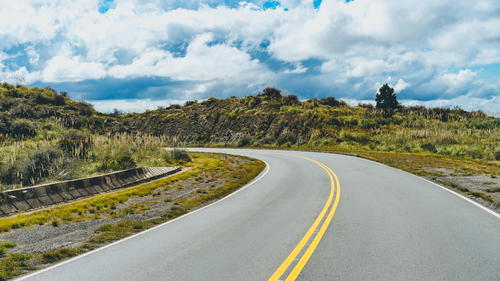
We stopped the car along the highway to take some photos of the mountainous views, and when we got back into the car, we forgot to turn the daytime lights back on.
Within fifteen minutes, we got stopped at a toll plaza and were issued a ticket, which we tried to fight, but we were unsuccessful.
An hour later, while closer to our destination, we stopped the car again for a break. When we got back in, we forgot to turn on the daytime lights. Would you believe it? We somehow got stopped again and were issued a second ticket for the same offense by a police officer.
It pays to keep the rules in mind! We spent our final day in Cordoba running around the city looking for the office at which to pay the fines. You could say we learned a lot about the rules in Argentina for highway driving!
Listen to travel and finance podcasts!
Ok, this isn’t really a specific way to save money while traveling; however, it’s an excellent podcast and it talks about a lot of different ways that you can save money.
We listen to podcasts super often and it’s how we’ve gotten new ideas on how to optimize travel, budgeting and finance.
Use a credit card to get a good foreign exchange rate
Whenever we can, we use credit cards when we travel, in order to get the best foreign exchange rate of the day and to also build points and miles.
Lately, we’ve been using the United Explorer card. There is no foreign transaction fee and has some really nice benefits.
We typically like using credit as much as we can while we’re away. We’ve found that we get the best conversion rates and don’t need to take out too much cash if we’re using credit often.
Using credit when you travel also (for us) shows exactly where our money went. And, if for some reason your credit card number gets stolen while you’re traveling, a company like Chase will contact you by text and email and let you know that there was fraud so you can resolve it.
This is especially relevant when purchases made abroad on a credit card can come up as a little bit dodgy for credit card companies and the security checks they may run on your account to make sure your account number is safe.
Note that when referring to a travel credit card, there is a difference between this and an “airline voucher.” For more on airline vouchers, see our guide called “What is an Airline Voucher?”
Sign up for credit card a bonus to pay for your trip on miles
Travel costs can really start to add up. You’ll start paying for flights, hotels, things that you need to pack and the list goes on.
Lots of credit cards have sign-up bonuses that you can leverage to get either cash back or points that you can redeem toward travel.
The famous Change Sapphire Reserve used to give you 100,000 points for signing up. That was worth about $1,500 that you could use toward travel.
In order to get the bonus, you needed to spend a certain amount, like $4,000 in three months. Note, though, that making large travel purchases in an optimal timeframe is a perfect way to hit spend minimums like this.
Our travel has changed so much since we learned the points and miles games through travel hacking. My first flights completely on miles with United was round-trip to South Africa. Even though the flight path was a bit crazy (New York - Frankfurt - Johannesburg - Cape Town), I got a built-in day to spend seeing Hamburg, Germany.
We save and earn miles on Jet Blue as well, and we book flights (sometimes big flights!) on our points with our credit card rewards. This has been really exciting for us in recent years!
Also, always remember to use any airline vouchers you may have gotten or earned on past or cancelled flights, to apply when purchasing.
Don’t pay foreign transaction or ATM withdrawal fees, ever
Whether you’re taking out cash or swiping your credit card, if you travel internationally, you may be paying for foreign transaction fees.
These fees are determined by your bank or the ATM itself and usually take something like 2 or 3% of the entire purchase.
That is expensive, and wasteful. It can also add up and put a damper on your travel budget.
Looking for a new travel credit card? Consider the United Explorer card. We have this card! We like it because of the sign-up mileage bonus, Global Entry credit and no annual fee for the first year.
Avoid paying fees when taking money out of ATMs abroad
When Dan introduced me to the Charles Schwab ATM card, I couldn’t believe it. I was so accustomed to getting charged $3-4 per ATM transactions on my trips to Guatemala, Peru, Ecuador and Bolivia that I didn’t think there was a way around it.
We use the Charles Schwab Investor checking and Fidelity Cash Management, which reimburses our ATM fees at the end of each month (save your receipts!) and we only use credit cards with 0 foreign transaction fees. Travel wouldn’t be the same without either of these cards in our wallets.
Now, I go to ATMs liberally on my trips and take out smaller amounts of money so that I can control my spending, and, stay safe by not having too much money in my wallet at one time.
Shop around for trip insurance online
These days, anything can come up that might prevent you from going on your trip. Lost bags? Theft? Trip cancelled?
Check out World Nomads and what this travel insurance company offers, before you go. You can save a lot of money and time by insuring parts of your trip.
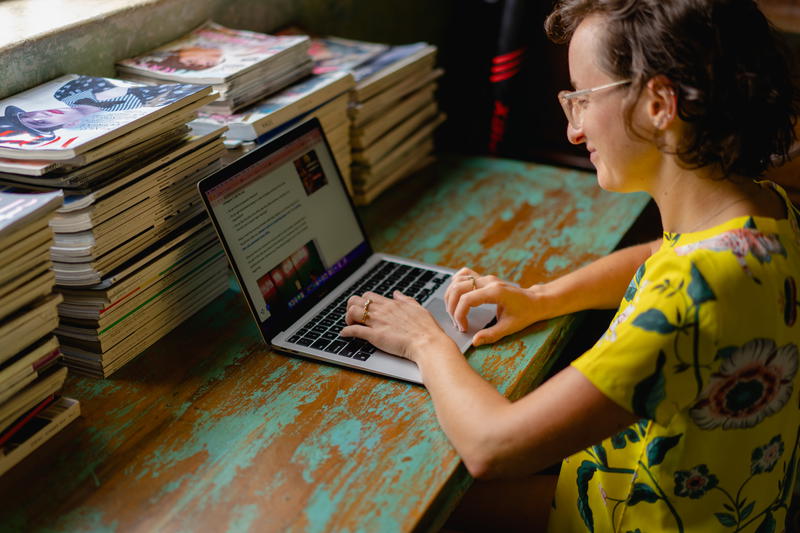
Get Priority Pass to save on airport lounges, and get in for free
Are you sick of getting to an airport and having to pay and arm and a leg for even a water bottle? Are you sick of the WiFi network being locked, or broken, when you’re at the gate or arriving in baggage claim?
Another way to make travel more comfortable and save when you’re in airports is to get Priority Pass for airport lounge memberships around the world. This is a great feature of the Chase Sapphire Reserve card, and probably the benefit that we love most.

Around the world, we’ve eaten buffet brunches in Hong Kong airport, taken naps in nap rooms in the Lisbon airport and had snacks on a deck of an airport in the Canary Islands all with our Priority Pass membership.
If you’re not ready for a new credit card, you can apply directly for Priority Pass in order to get a membership to airline lounges around the world and never have to buy overpriced airport food or WiFi again.
We love Priority Pass!
Priority Pass is a must-have for long airport visits.
Learn more about Priority PassFind the best price for flights
If you’re traveling during your trip or trying to plan your vacation, check out Google Flights and experiment with picking different days to depart and return.
You can also use a site called Skiplagged to help you find some of the cheapest flights out there. The way it works is by finding you cheaper flights that have a connection in your final destination.
I actually did this type of “flighting” back in 2016 when I was flying to Iceland. Well, technically London. I didn’t end up wanting to go to London and wanted to spend more time in Iceland.
Luckily, my flight had a connection in London and I got off the plane and missed my connection. I saved a lot of money because London is expensive and this flight was already cheaper than flying to Iceland directly.
(Note: Iceland is expensive too, and that’s why I wrote about traveling in Iceland on a budget).
If you have checked luggage, be careful because your bags will end up in your final destination. This only works if you have carry-on bags.
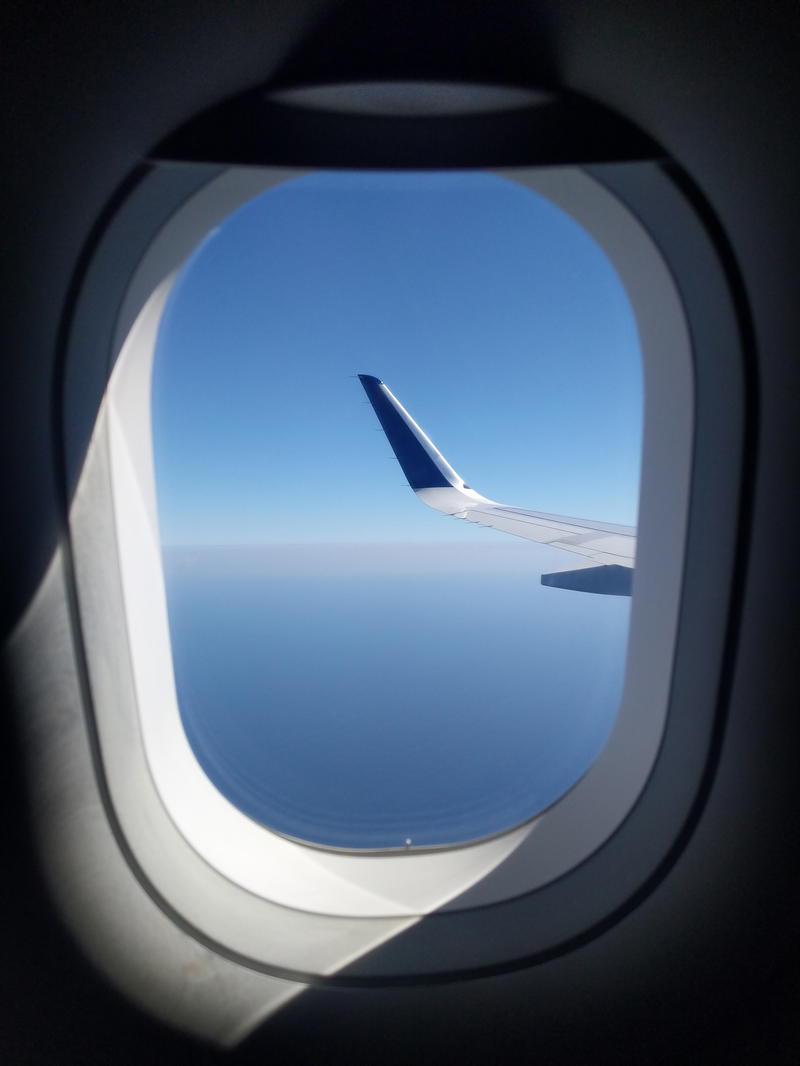
Lastly, consider taking a red eye flight. The prices on these flights tend to be cheaper because flying overnight isn’t as ideal as a morning or afternoon flight.
Keep in mind that when you arrive in your destination, you’ll have a lot of time to explore while waiting to check in to your accommodation.
Book a ticket in basic economy to save money on flights
Another thing you can do is book a ticket in basic economy class to get a lower flight price, if you don’t mind bringing only a personal item.
Lastly, you can sign up for Going, which will send you emails with various different flight deals. If you’ve been waiting for a vacation and looking to save the most amount of money, check it out!
Book flights on Skyscanner (or other sites) on anonymous mode
Booking flights for cheap with anonymous mode removes any cookies that may have pushed the prices up. So, when you keep searching flights on Skyscanner or other sites for bookings, the computer remembers you, and slowly the prices creep up (only sometimes).
When you’re ready to book, turn shadow mode on your browser, and sometimes you’ll get lucky and the prices will be cheaper.
The tip here is to use a trustworthy VPN like this one and incognito window is pretty pro.
Save money with rental cars
Rental cars have gotten really expensive these days.
When we traveled to Los Angeles recently, we decided that we needed a car. LA is a driving city and you can’t get very far by walking.
We checked all of the traditional sites and rental car prices were really high.
Luckily, an app called Turo exists and it worked perfectly. We rented a car from an LA local and we were able to get a great deal. In fact, we paid about half of what traditional rental car places charged.
If you’re not interested in Turo, you can shop around at different Airport locations, close by cities, through credit card market places and look for deals or promotions to save even more money while renting a car.
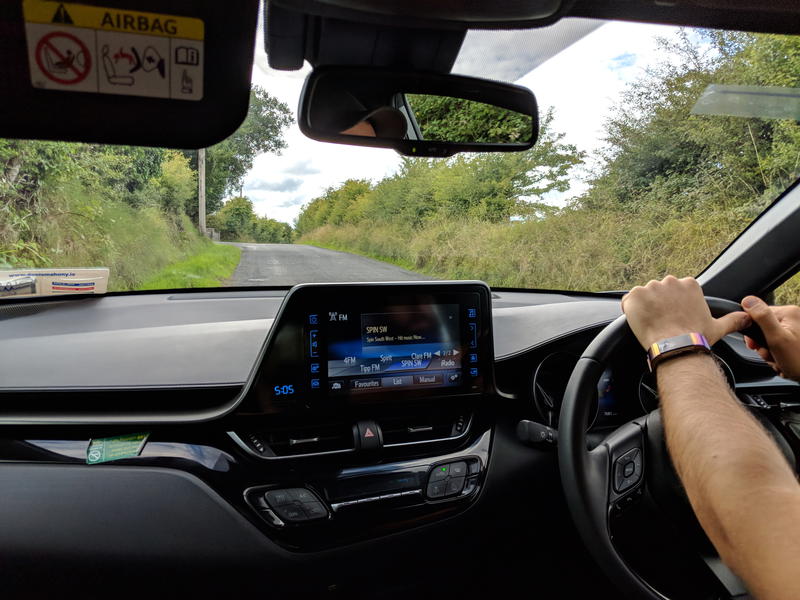
I’ll sometimes look at rental cars near a major train line to try and find the “local price”. For example, if an airport has a train line that takes you closer to a major city, look for a rental car location a few stops past the airport.
If you can wake to rent a car from the train, than great! Even if you need to take a taxi to and from the rental car location, you may still save some money with the total cost of the car.
Save money by using ride-share-style cabs
I’m sure you’ve heard of Lyft and Uber. Both have really taken over the world.
Instead of renting a car, you can check out using those services. If you only need a few rides during your trip, it’ll be much cheaper than paying for gas, tolls and the daily rental car rate.
Lately, I’ve found that regular yellow cabs are often cheaper than ride shares, in NYC. Check around and ask for price quotes to determine what makes the most sense for you.
Here in New York City, I have an app called Curb, which allows you to get yellow taxis. It’s also safe, which is why we talk about it so much in our NYC safety guide.
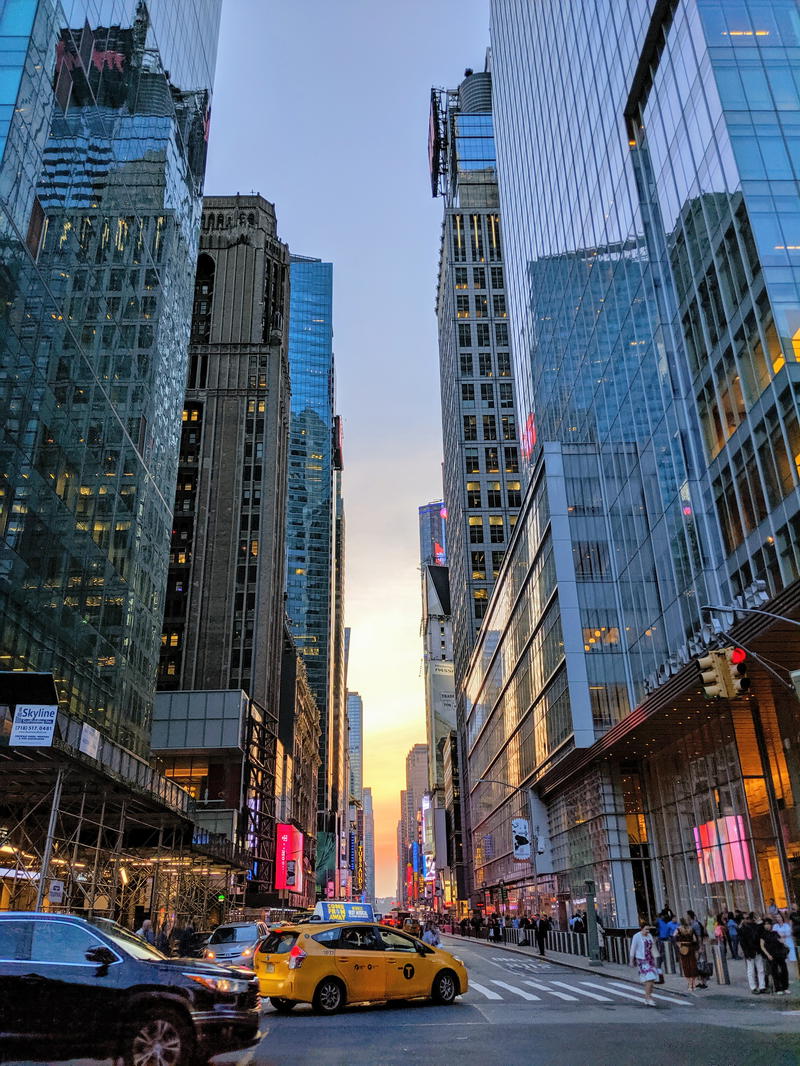
Before leaving for the airport one time, we did this and it cost half as much as what Lyft and Uber were charging.
You can get $5 off of your first ride with Curb! Download the app and use the code 32S31M.
Travel in a group and share download links for free credit
While traveling in a group, try being the first one to latch on to any apps that would be useful. This could be local food delivery apps or local ride share programs.
If you get these apps first, and then share your download links with the group, you can clock yourself up lots of free credit for bringing in new members!
This tip really works because you can be trying new things and being adventurous while also getting freebies from apps.
The more you share, the more referral credit you get, and you can also learn by talking to other travelers and expats about the most efficient apps for ordering food or for ride-sharing in a particular city.
Shop around for the best hotel, Airbnb and hostel prices
Before we go somewhere or while we’re traveling and looking for an additional place to stay, we shop around to try and find the best rates.
Sometimes we’ll check Airbnb and see what prices look like. We’ll head over to Hostelworld and see if we have any luck. Maybe we’ll search on Booking.com.
Consider that if you’re traveling with a group of friends, couples or family members, that you can save money by booking an entire multi-bedroom Airbnb house or property like this one in Upstate NY, which will typically beat the cost of everyone getting individual hotel rooms elsewhere.
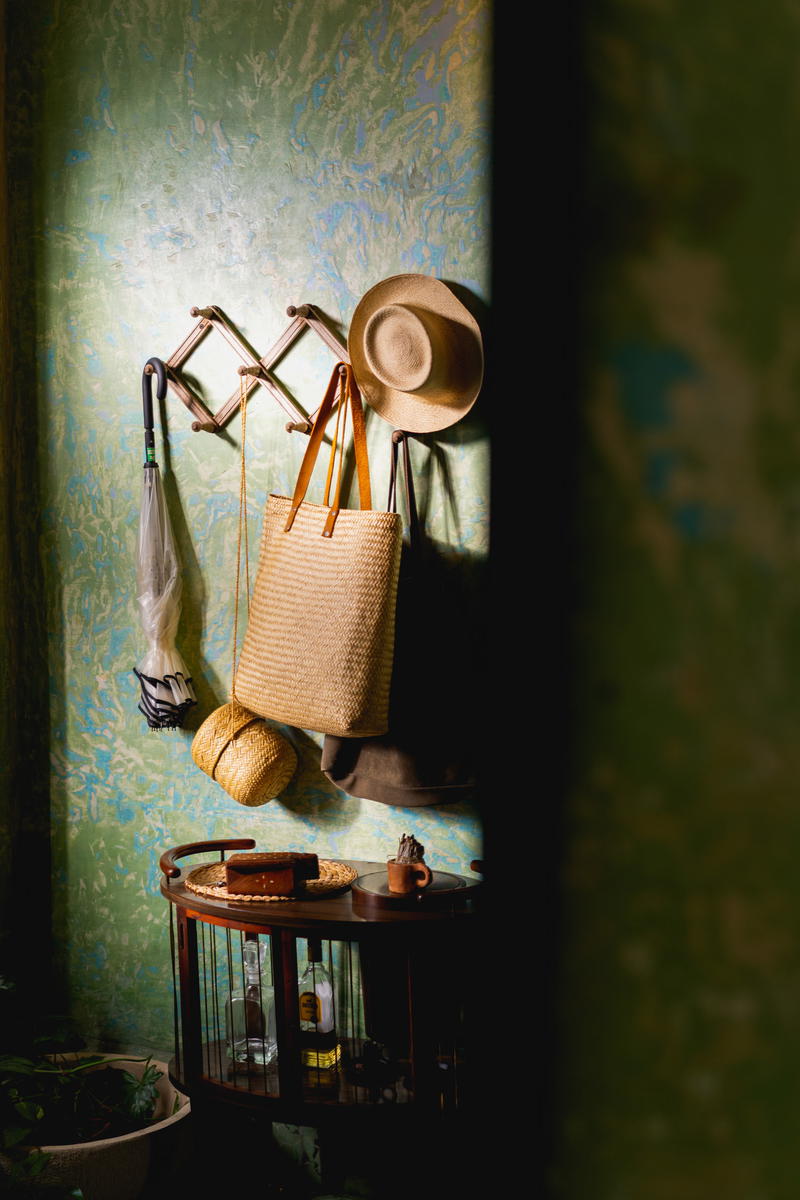
Before you know it, we’ve seen listings from too many sites and it’s hard to remember where we say some of the listings that we liked.
Because we’ve been staying in hotels more recently, we like to check out HotelTonight. We’ve seen some of the best prices on this website over anything else.
The only thing with HotelTonight is you can’t book too far in advance.
We’ve been having good luck on Priceline and Kayak for hotels.
Take out a weekly budget in cash
Weekly spending budgets are a huge way of seeing if you’re on track to avoid overspending during your travels.
In some countries where cash is king and credit is not so available quiet yet (or may never be), visually seeing how much cash you have left can show you how much you’ve spent.
Find creative and new ways to work remotely and travel
Traveling doesn’t have to be expensive. Have you considered working remotely while traveling in order to make some money to pay for your expenses?
You find some types of remote work to work on while you’re away, by checking these remote work tips for travelers.
If you are a professional looking for freelance work, Flexjobs can work out nicely for finding remote work and part-time opportunities.
What we also really like is traveling with a group and getting everything under the Remote Year platform like coworking membership, housing and flights onward, all for a flat fee.


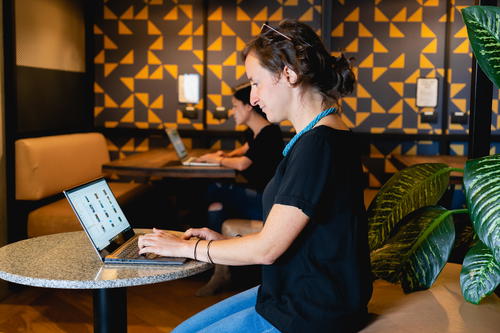
✈️ Did our travel tips help?
We share honest, experience-backed advice to help you with smoother trips. If our suggestions saved you time or stress, treating us to a coffee lets us keep researching the next post.
Fuel more travel adviceYou may also like
-
![A person holding a notebook with the words fluent city in front of a cactus.]()
How to Learn Languages and Helpful Phrases for Traveling
Did you ever realize that traveling gets a little bit easier when you know a few words in the language of the country where you're going? We've created a list for a few surprise ways to learn languages based on what works best for us.
-
![Lufthansa a319 - lufthansa a319 - lufthansa a3.]()
How to Use Travel Hacking to Get Free Flights
Is travel hacking worth it? Let’s see the best ways to get free flights and the websites that will let you travel hack your next trip. Here’s our guide to hacking our travel.
-
![]()
19 Exciting Solo Travel Destinations in 2026 (From Real Travelers)
What are the best ideas for unique solo travel destinations? Check out these popular cities and countries for traveling on your own — some may surprise you.
-
![]()
How to Pack a Suit for Travel (Step By Step Guide)
How do you fold a suit without it wrinkling, and pack it into a packing cube in carry-on luggage? Here’s my best foolproof way to pack suit pants and a suit jacket for travel.
-
![]()
How to Get Global Entry for Your Child: Guide for Parents
Figuring out if your baby or child needs Global Entry? Here are my top tips for getting Global Entry for a kid or minor, from how to apply to what to expect.
-
![]()
15 Tricks for How to Avoid Getting Sick While Traveling
How do you not get sick while you’re on vacation or on a trip? Use these recommended tips and tricks to avoid falling ill while traveling in another country.
